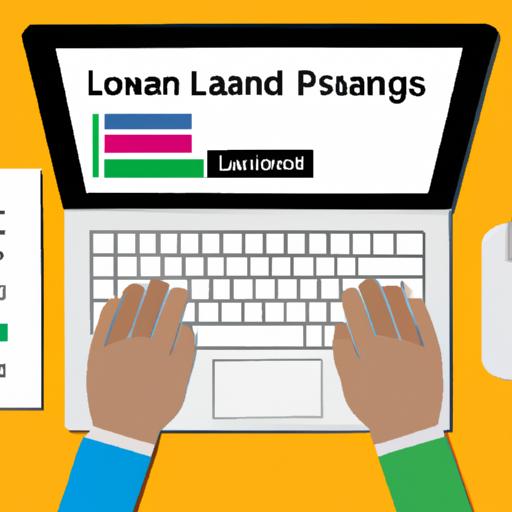When it comes to fueling the growth and success of your business, securing the right financing is crucial. Business loans can provide the necessary capital to meet various operational needs, expand your enterprise, or seize new opportunities. However, finding the right place to obtain a business loan can be overwhelming, considering the multitude of options available. In this article, we will explore the best avenues to explore when seeking a business loan, ensuring you make an informed decision that suits your unique requirements.

The Importance of Business Loans
Business loans play a pivotal role in providing entrepreneurs with the financial resources needed to thrive. Whether you are a startup or an established business, these loans can help you fund essential aspects such as purchasing equipment, hiring staff, managing cash flow, or expanding into new markets. By injecting capital into your business, loans can accelerate growth, boost productivity, and pave the way for long-term success.

Factors to Consider Before Applying for a Business Loan
Before diving into the loan application process, it is essential to consider several factors that can impact your chances of approval and the terms of the loan. Taking these into account will help you approach lenders with confidence and increase your likelihood of securing the financing you need.
Credit Score and Financial History
Your credit score and financial history are key determinants of your creditworthiness. Lenders often rely on this information to assess the risk associated with lending to you. Maintaining a healthy credit score and a clean financial history demonstrates your ability to manage debt responsibly and increases your chances of obtaining favorable loan terms.
Business Plan and Projections
Crafting a well-structured business plan is crucial when applying for a loan. This document outlines your business goals, strategies, and financial projections, providing lenders with a clear understanding of your vision and ability to repay the loan. A robust business plan showcases your knowledge and commitment, instilling confidence in lenders.
Collateral and Guarantees
Some lenders may require collateral or personal guarantees as a form of security against the loan. Collateral can be in the form of assets such as property, equipment, or inventory. Personal guarantees, on the other hand, involve the borrower taking personal responsibility for the loan repayment. Assessing the collateral or guarantee requirements upfront allows you to determine which lenders align with your assets and risk tolerance.
Repayment Terms and Interest Rates
Understanding the repayment terms and interest rates associated with a business loan is vital. Different lenders offer varying repayment periods and interest structures. Comparing these terms helps you choose a loan that aligns with your cash flow and long-term financial goals. Additionally, consider whether fixed or variable interest rates are more suitable for your business.

Where to Start: Researching Business Loan Options
Now that you have evaluated the key factors, it is essential to explore the various options available for obtaining a business loan. Below are some avenues to consider:
Traditional Banks
Traditional banks have long been a go-to source for business loans. They offer stability, a wide range of loan products, and personalized service. Banks typically require a solid credit history, a comprehensive business plan, and collateral. While securing a loan from a bank can be challenging, the benefits often include competitive interest rates and established relationships.
Credit Unions
Credit unions, similar to banks, offer loans to businesses. However, credit unions are often more community-oriented and may have more flexible lending criteria. They may offer lower interest rates, reduced fees, and a more personalized lending experience. Building relationships with credit unions can be advantageous, as they often prioritize the success of local businesses.
Online Lenders
The rise of online lenders has revolutionized the borrowing landscape. Online lending platforms provide convenience, speed, and accessibility. These lenders offer various loan options, including term loans, lines of credit, and invoice financing. Online lenders often have less stringent eligibility criteria, making them a viable option for startups or businesses with less established credit histories. However, it is crucial to carefully review the terms, interest rates, and reputability of online lenders before making a decision.
Government-Backed Loan Programs
Government-backed loan programs, such as those offered by the Small Business Administration (SBA), provide support to entrepreneurs seeking financing. These programs often have favorable terms, lower interest rates, and longer repayment periods. However, the application process can be more involved, requiring extensive documentation and adherence to specific eligibility criteria. Exploring government-backed loan programs can be beneficial for businesses that meet the requirements.

Frequently Asked Questions (FAQ)
Q: What credit score do I need to qualify for a business loan?
A: While credit score requirements vary among lenders, a score of 680 or higher is generally considered favorable for business loan applications. However, some lenders may be more lenient, particularly for loans with smaller amounts or government-backed programs.
Q: How long does it take to get approved for a business loan?
A: The approval process timeline varies depending on the lender and the complexity of your application. Traditional banks may take several weeks to review and approve a loan, while online lenders can provide a decision within days or even hours.
Q: Are there alternatives to traditional business loans?
A: Yes, several alternative financing options exist, such as crowdfunding, angel investors, and venture capital. These options may be suitable for businesses that do not meet the criteria for traditional loans or prefer alternative funding models.
Q: Can I get a business loan with bad credit?
A: It can be challenging to obtain a business loan with bad credit, but it is not impossible. Exploring alternative lenders, improving your credit score, or seeking a loan with collateral or a personal guarantee can increase your chances of approval.
Conclusion
Securing a business loan is a significant step towards achieving your entrepreneurial goals. By thoroughly assessing your financial situation, understanding the factors that lenders consider, and exploring different loan options, you can make an informed decision that aligns with your business needs. Whether you choose a traditional bank, credit union, online lender, or government-backed program, diligent research and thoughtful consideration are essential. Remember, each business loan option has its advantages and considerations, so take the time to evaluate your options carefully. With the right financing, you can propel your business to new heights of success.
